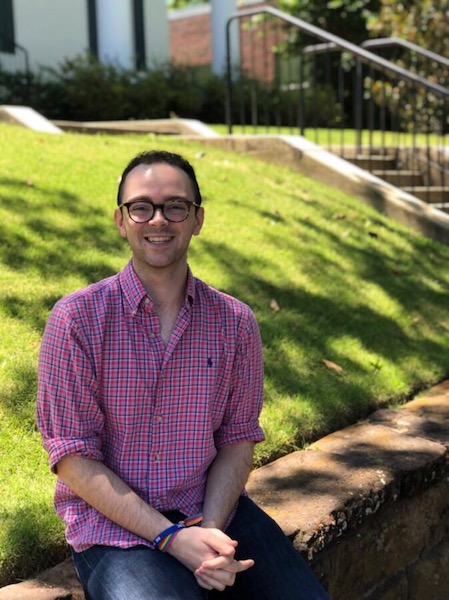
For junior political science major Bailey Deavers, earning a summer fellowship at the Southern Education Foundation’s Leadership Initiative meant more than just a job opportunity. As a long-time advocate and scholar for social justice, serving as a fellow meant a new avenue for lifting up others.
The Southern Education Foundation (SEF) works to address educational inequity among students of color and low-income populations in the South. The Leadership Initiative fellowship places undergraduate and graduate students with nonprofits, state agencies, school districts, and universities across the region to learn about issues of educational opportunity. SEF placed Deavers at local nonprofit Alabama Possible, a statewide nonprofit seeking to break down barriers in prosperity through education, collaboration and advocacy.
As a sibling to students with physical and learning disabilities, Deavers has witnessed the difficulties encountered by those with accessibility or educational needs. He was drawn to SEF because his own observations coincided with the foundation’s distinct approach to issues of inequity in the education system.
“For me, my siblings’ difficulties demonstrated this idea of equity,” he said. “What’s equitable is taking the time to understand the unique needs of each person. One thing SEF does really well is taking the time to understand inequity from the perspective of marginalized groups. I immediately knew from looking at their mission that this is an organization that prioritizes that empathy.”
Deavers was placed through SEF at Alabama Possible, a statewide nonprofit based in Birmingham working to address systemic poverty and college accessibility. In a short time, Deavers has been able to assist with major projects at the organization, including the development of a communication tool for the nonprofit to propose a needs-based, place-based scholarship program. The scholarship will benefit local public high school students seeking to attend community colleges in the Birmingham area and surrounding counties.
“To better our communities, we want people to have access to higher education. We want students graduating from Alabama public high schools to go to school in the state,” he said. “We want students to see the opportunity they have here.”
Additionally, Deavers worked with Alabama Possible’s Cash for College program, which partners with high schools across the state to encourage students to complete the FAFSA. When his supervisor had a family emergency the day of the Cash for College Celebration, Deavers stepped up to lead last-minute preparation and management for the event that hosted state educators, the state superintendent, and members of the Alabama Department of Education.
Deavers said it was both the most challenging and rewarding part of the fellowship.
“It showed me how much I’ve grown and how much I’ve learned here. If I had been put in that position two years ago, I’m not sure what I would have done,” he said. “But my experience at Samford equipped me to be able to step into something like this and do it well.”
He credits part of the personal development he’s undergone at Samford to the Micah Fellows, a four year, service-oriented honors program. As a Micah Fellow, he has studied the Christian ideals of justice, mercy and humility, as described in Micah 6:8, in the context of community engagement.
“I wanted to become a part of an honors program that prioritized the idea that we have an obligation to serve and to make our society more equitable,” he said. “What Micah Fellows showed me is that there is a need for social justice. And the program has given me the confidence to work toward change.”
On campus, Deavers has initiated the conversation on another facet of educational inequity through disability advocacy. He founded the student organization DREAM (Disability Rights, Education, Activism, and Mentoring) in 2018. The organization now has over 100 members and advocates for a variety of accessibility needs on campus.
“I want students with disabilities, especially physical disabilities, to come onto this campus and feel welcomed, to know that this is an accessible place for them,” he said.
As Deavers considers a career in law or public policy, he said his family, the SEF fellowship and his involvement on Samford’s campus have instilled in him the value of compassion and discernment in each circumstance.
“I have seen in a profound way what students are dealing with on a policy level, and what we can actually do to make change on a personal level,” he said. “Whether it’s the Southern Education Foundation fellowship, or Micah Fellows, or DREAM, I have sought to approach each one with an empathetic perspective. Empathy has the power to change everything.”
